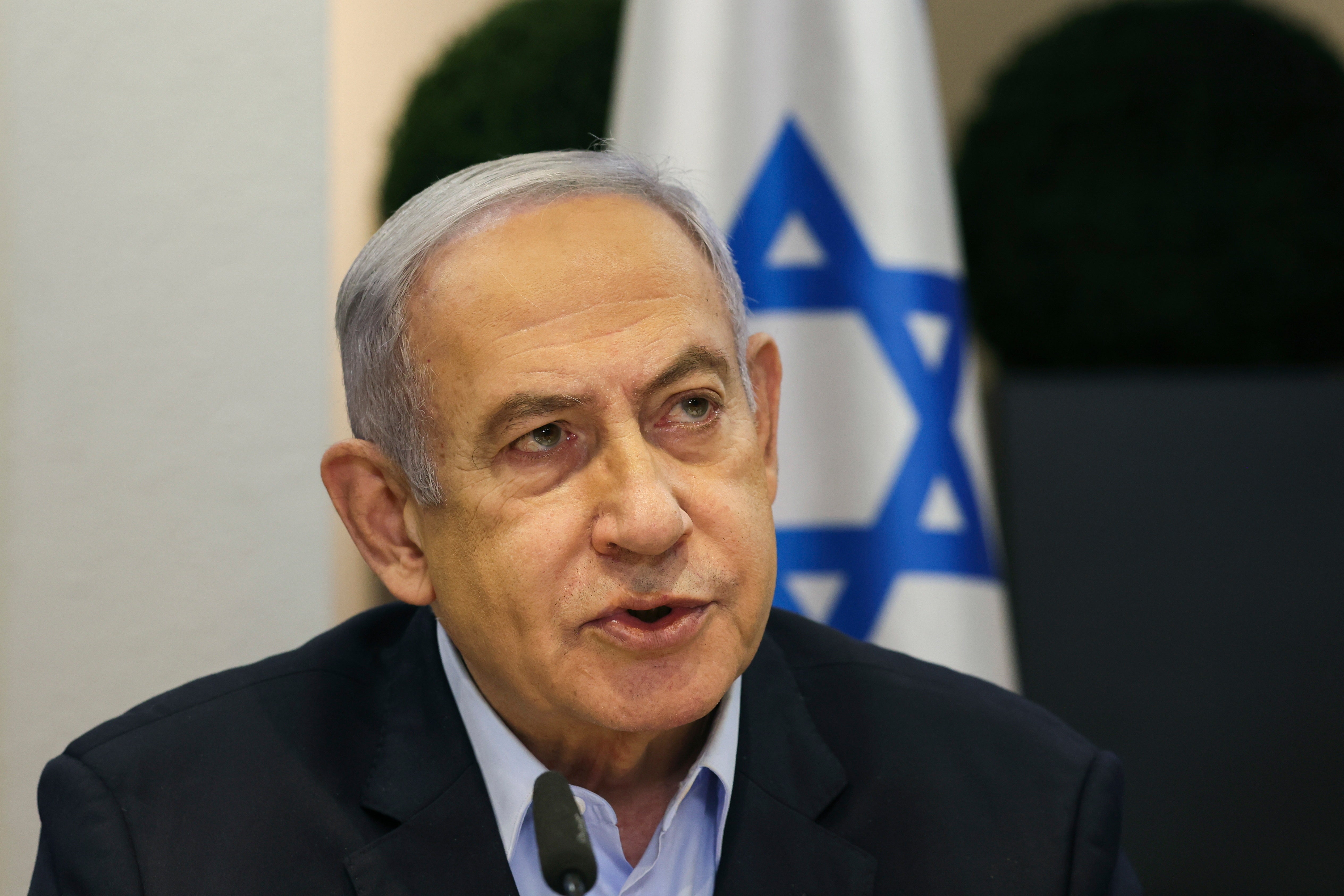Israel shutting down Al Jazeera is straight out of the authoritarian playbook
Al Jazeera, like any media organisation, never gets it all right and has no doubt made mistakes and offended many, writes Eric Lewis. But banning news organisations from reporting in your country is never the answer


You don’t need to be a fan of Al Jazeera or a regular viewer of its numerous outlets to be saddened and outraged by Israel’s ejection of the network from the country and seizure of its equipment and property. Prime minister Benjamin Netanyahu said the decision followed a unanimous vote by Israel’s war cabinet, posting that “the incitement channel Al Jazeera will be closed in Israel”. In a separate statement, he accused Al Jazeera correspondents of having “harmed the security of Israel” and said that “the time has come to eject Hamas’s mouthpiece from our country”.
Al Jazeera has more than 70 bureaux, making it one of the largest news organisations in the world. Thirteen of its journalists have been killed, including Shireen Abu Akleh, one of the best-known reporters in the region. She was unarmed when killed by Israeli forces in the West Bank in 2022. More than 50 of the organisation’s journalists have been attacked since 7 October.
To be sure, Al Jazeera has a point of view and has focused extensively on the Israeli-Palestinian conflict, including in its detailed reporting of abuses by Israeli troops during the war in Gaza. It also documented and condemned the 7 October Hamas attacks, while also questioning some of the initial claims about the number of casualties – figures that have since been revised downwards. It airs a narrative not often heard in Western media and has drawn both plaudits and criticism for its more pro-Palestinian viewpoint. It ran interviews with terrorists, including Osama bin Laden, not endorsing his views but exposing his terrorist ideology to the world.
Like many news outlets, Al Jazeera has been the target of criticism over the years by many governments. As The Washington Post has written, it is known “for hosting freewheeling debates on delicate topics, previously unheard of on state-run Arab media”.
Israel is not the first government to shut down Al Jazeera. When the UAE and Saudi-led blockade of Qatar was imposed in 2018, one of the chief demands made by the blockading nations was that Qatar immediately shut down Al Jazeera because of its criticism of other Gulf regimes. The Algerian government has twice tried to freeze or shut down Al Jazeera to stop programmes that criticised the government or implicated the military in a series of massacres.
Bahrain banned Al Jazeera from reporting, claiming that it was biased towards Israel and against Bahrain. The tightly controlled Egyptian media criticised the network for allegedly biased coverage relating to Egypt and its authoritarian government. India banned the Al Jazeera television channel for broadcasting disputed maps of India, showing Kashmir as disputed rather than Indian territory.
The US withdrew the credentials of an Al Jazeera reporter in Iraq; officials, including US defence secretary Donald Rumsfeld, had accused Al Jazeera of showing footage of beheading. The reporting was later retracted. Libya accused Al Jazeera of working on behalf of the West and the Gulf Cooperation Council to spread anti-Libyan “falsehoods and lies to incite international public opinion”. Malaysian police raided the network after Al Jazeera broadcast a documentary alleging mistreatment of illegal migrants and foreign workers during Covid. The United States has accused Al Jazeera of anti-American bias, and conservative media have accused it of being antisemitic.
Al Jazeera, like any media organisation, never gets it all right, and has no doubt made mistakes and offended many, including the plethora of governments listed above. But banning news organisations from reporting in your country is a tactic straight from the authoritarian playbook. A critical part of the support for Israel in the United States and Europe is that it is, as typically stated, “the only democracy in the Middle East”. The far-right government now ruling Israel, which unanimously approved the banning of the most open, widely viewed network in the region, has limited patience for the requirements of democracy.
It is not just elections that define democracy. Russia and China hold elections. It is not just majority rule that defines democracy; mistreatment of Muslims by the ruling Hindu nationalist BJP in India is broadly popular. What fundamentally defines democracy is freedom of expression – even the expression of opinions that are unpopular, offensive, biased or wrong. No media outlet should call for or incite violence. But the press is entitled to report, disclose, expose, and criticise.
Israel has had a vibrant and highly argumentative media sector since its inception. It has more than a million Arab citizens. For the prime minister to call it “a mouthpiece for Hamas” is neither accurate nor fulfilling the requirement that, in the words of Justice Brennan, “debate on public issues should be uninhibited, robust and wide open”. Nor does Al Jazeera threaten the security of Israel; claims of national security are always put forward to silence dissent. Israel’s security is far more threatened when a radical right-wing government tries to silence opinions it does not like. Al Jazeera has been around for nearly 30 years. It has no army or weapons; it is a fallible, opinionated media outlet.
Justice Louis Brandeis, who gave his name to a distinguished American university, was the first Jewish person ever appointed to the United States Supreme Court. He endured a lifetime of antisemitic rejection, including from some of his fellow justices who refused to speak to him. He wrote in 1927: “If there be time to expose through discussion the falsehood and fallacies, to avert the evil by the processes of education, the remedy to be applied is more speech, not enforced silence.” He well understood, and staked his reputation on absolute freedom of speech – even speech with which one may strongly disagree.
Sadly, the shutdown of Al Jazeera is the beginning of the imposition of “enforced silence” in Israel, and it lowers the barrier everywhere. It is the tool of tyrants and should be denounced as inimical to freedom, in Israel and everywhere.



Join our commenting forum
Join thought-provoking conversations, follow other Independent readers and see their replies
Comments